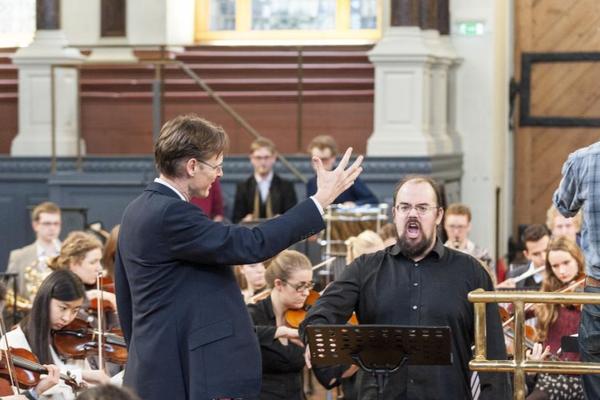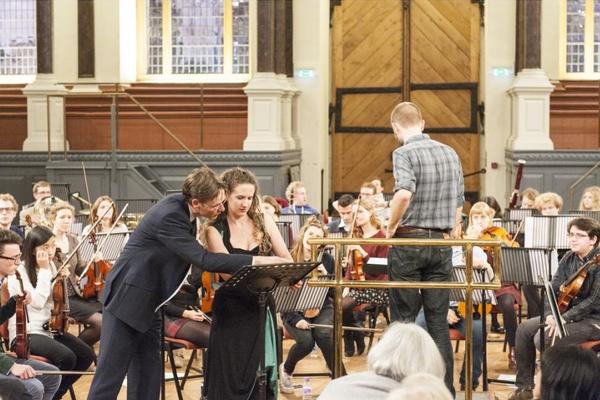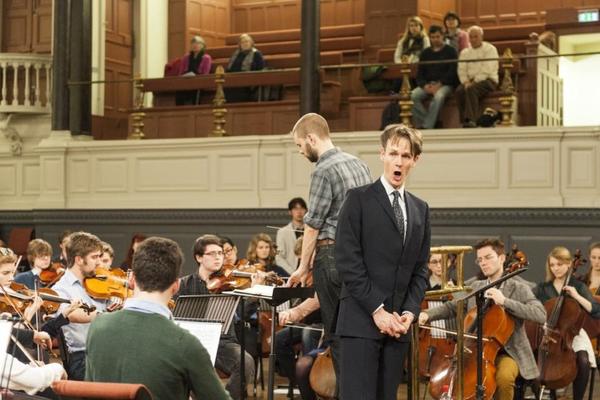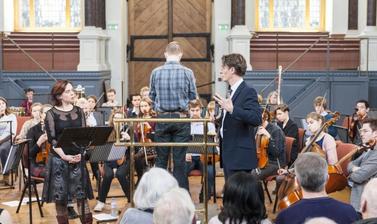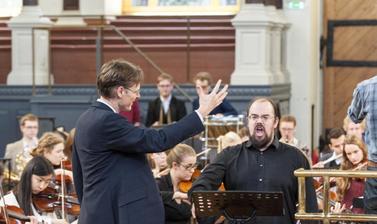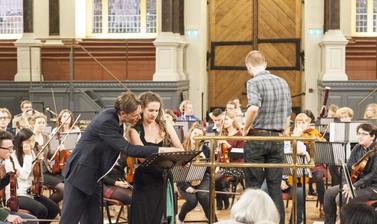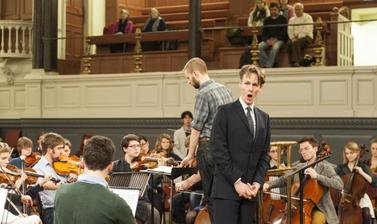Ian Bostridge Masterclass
Following the TORCH Humanitas programme last year with Midori, Ian Bostridge came to Oxford for a lecture and masterclass with OUO. He was joined by Oxford alumni singers, some of whom also played in OUO: Anna Sideris (Music), Tara Shahani Mansfield (Music), Kath Cooper (English, Viola), Robin Whitehouse (Maths, Horn). Jasper Bittner (Cello) remembers the event:
“Over the past three decades and more there has been a sustained effort in this country to devalue or deny the relevance of an education in the humanities, a humane, a liberal education – even to subvert its very meaning.”
With these words, Ian Bostridge opened his talk on Schubert’s Winterreise, the first of a series of events that marked his Humanitas Visiting Professorship in Classical Music and Music Education at the University of Oxford [1]. Why would anyone start a talk on Schubert’s much celebrated song cycle with such a bold accusation? Because, as Bostridge showed over the course of his lecture, music is about building, forming, and inspiring a personality in its own right. Universities nowadays have come under increased pressure to prepare students for lucrative careers. That is historically speaking a relatively new approach to universities. And one that turns the experience of university into a commodity. Science, business and law degrees seem to yield higher value for money in such a mindset.
Yet this is not the way to approach a song cycle like Schubert’s Winterreise, a monument of western classical music that contains many dimensions simultaneously: Germany political history, the artistic perfection of the genre of “Kunstlied”, an intimacy that is immediate and acute. It becomes impossible to think of the individual, the society, or aesthetics separately. Artworks, literature, poetry, and music are not merely pieces for consumption; they are challenges to each of us. Studying a song cycle like Schubert’s Winterreise is a form of personal refinement that contributes to the Self and helps leading and sustaining independent and critical mind.
That was Ian Bostridge’s message throughout his visit. And it was the link that connected his rather personal remarks on the mother of all song cycles with his master-class on the songs Gustav Mahler wrote seventy years later. Together with the Oxford University Orchestra and five young singers, Bostridge spend an entire morning and afternoon working on songs from “Des Knaben Wunderhorn” and “Rückert-Lieder”. Bostridge’s way of working with the young musicians was characterised by an interplay of intensive focus and gentle encouragement. He knew exactly when he could demand more of the musicians and could push both orchestra and singers to a new level of quality. Music-making for Bostridge is as much an intellectually and personally challenging progress as it is about technical ability and honing one’s craft. They are two sides of the same token. Mahler’s Lieder couldn’t epitomize Bostridge’s philosophy any better: Orchestra, singer, text, and music comment on each other. An entire world emerged in front of our eyes, a cosmos of late 19th century romanticism, its dark soul, a deeply aesthetic sensitivity, a world that eventually died with the outbreak of the first world war. Bostridge, who tried hard to stay out of the focus of attention in order to give the impression of merely humbly assisting what was going on already, was a real magician in evoking that world. He carried the orchestra and the audience away for half a day to shores hitherto unknown. That evening, we all went home with a very different sense of urgency in the way we play music, a new understanding for why this Orchestra needs to continue its work at the University - and not simply for decorum.
[1] Excerpts from this talk have been published in an article in The Guardian




